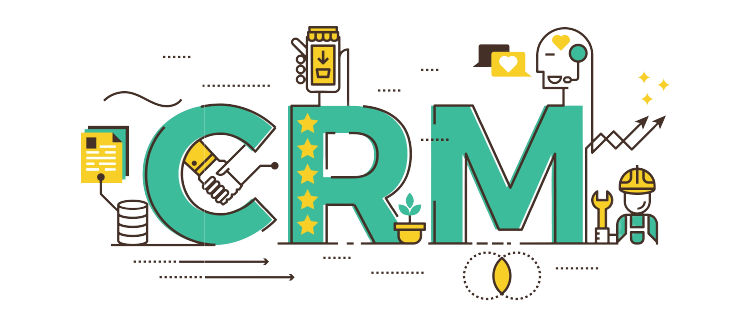
Have you ever wondered what productivity truly means? Is it merely the sense of accomplishment after completing a lot of work, or does it involve working efficiently without obstacles? The concept of productivity can be confusing as it lacks a clear definition.
According to Merriam-Webster, productivity is defined as “yielding results, benefits, or profits.” However, this definition falls short for businesses seeking a functional understanding of productivity. The question remains: How do we define and measure productivity effectively?
Today’s business leaders are increasingly fixated on boosting productivity, especially given the uncertain economic climate. CEOs are striving to maximize existing resources and operate as efficiently as possible.
Unfortunately, some executives resort to quick fixes, implementing “no meeting Fridays” or enforcing return-to-office policies, and refer to them as ways to increase productivity. While these measures may seem effective, they miss the mark. Without a solid definition and measurable criteria, it’s challenging to gauge genuine improvements in productivity.
Many experts and even researchers have found out that implementing CRM software for small business has proved remarkable when it comes to increasing employee productivity. With its array of powerful features, a CRM system streamlines workflows, automates repetitive tasks, and fosters seamless team collaboration. The centralized data and real-time insights provided by CRM enable data-driven decision-making, empowering employees to make informed choices that drive positive outcomes.
In this blog, we delve into the concept of productivity and how CRM software can be the catalyst for increasing and enhancing it. Keep reading to discover the remarkable impact a well-integrated CRM solution can have on your team’s efficiency and overall performance.
What Is Employee Productivity?

Employee productivity refers to the measure of an employee’s efficiency and effectiveness in completing tasks and achieving goals within a given timeframe. It is a quantitative assessment of how much work an employee produces relative to the resources, time, and effort invested.
High employee productivity indicates that an individual or team is making the best use of their skills, knowledge, and resources to deliver output of high quality and value. Productive employees contribute significantly to the success and growth of an organization, leading to increased performance, profitability, and overall success.
Employee productivity is a critical aspect of any successful business, as it directly impacts overall performance and profitability. When employees are productive, they can accomplish tasks more efficiently, meet deadlines, and contribute to the achievement of organizational objectives. Productive employees are proactive and self-motivated, continuously seeking ways to improve processes and deliver outstanding results.
Measuring employee productivity involves assessing various factors, including the quantity and quality of work completed, time management, and the ability to adapt to changing circumstances. It is essential to set clear and achievable goals for employees, providing them with the necessary tools, resources, and training to perform their tasks effectively.
Several benefits come with a workforce that exhibits high productivity. Not only does it lead to increased output and improved efficiency, but it also enhances employee satisfaction and engagement. When employees feel empowered to excel in their roles, they are more likely to experience job satisfaction, which, in turn, boosts morale and reduces turnover rates.
Employers can implement various strategies to enhance employee productivity, such as providing regular feedback and recognition for a job well done, fostering a positive and collaborative work environment, and encouraging continuous learning and skill development.
In recent times, technology has played a significant role in shaping employee productivity. Tools like CRM software, project management platforms, and communication applications have revolutionized the way employees collaborate and complete tasks. Best CRM software for small business, in particular, enables businesses to streamline customer interactions, automate repetitive processes, and access real-time data for informed decision-making. By utilizing CRM software, employees can focus more on value-added tasks and customer relationship building, leading to improved productivity and customer satisfaction.
Thus, it can be said that employee productivity is a crucial aspect of organizational success, driving efficiency, innovation, and growth. By fostering a culture of productivity and leveraging technology like CRM software, businesses can empower their employees to reach their full potential and contribute to the achievement of business goals.
The Power of Employee Happiness in Driving Productivity

The link between employee happiness and productivity is quite evident. Happy and fulfilled employees are not just a pleasant addition to the workplace; they are a key driver of success and growth for any organization. “Productive Workers Are Happy Workers”. Let’s explore the significant impact of employee happiness on overall productivity and delve into strategies to create a positive work environment that fuels the success of both employees and the business.
- Happiness-Productivity Connection:
Numerous studies have demonstrated that happy employees tend to be more productive, creative, and committed to their work. When employees feel valued, supported, and satisfied with their jobs, they are more likely to go the extra mile, willingly contribute new ideas, and actively collaborate with their colleagues. Positive emotions not only enhance cognitive abilities but also foster a sense of purpose and motivation that drives employees to excel in their roles.
- Role of Work Environment:
Creating a work environment that promotes employee happiness is a multifaceted approach. It involves factors such as fostering a culture of appreciation and recognition, providing opportunities for skill development and career growth, and encouraging work-life balance. Additionally, offering competitive compensation and benefits packages, along with flexible work arrangements, can contribute significantly to employee satisfaction. - Empowering Employees through Autonomy:
One crucial aspect of enhancing happiness and productivity is providing employees with a sense of autonomy and ownership over their work. When employees have the freedom to make decisions and take ownership of their projects, they are more invested in the outcomes and demonstrate higher levels of dedication and creativity. - Importance of Employee Well-being:
Caring for employee well-being is fundamental in ensuring a happy and productive workforce. Employers can prioritize well-being by promoting a healthy work-life balance, offering wellness programs, and providing access to mental health resources. A supportive approach to employee well-being not only boosts productivity but also fosters a positive and inclusive work culture. - Recognition and Feedback:
Recognizing and acknowledging employee contributions is a powerful motivator. Regular feedback and constructive recognition boost employee morale and reinforce the sense of value they bring to the organization. Celebrating achievements, big or small, fosters a culture of appreciation, strengthening the bond between employees and their work.
Thus, productive workers are indeed happy workers, and the reverse is true as well. Investing in employee happiness is a strategic move that yields long-term benefits for both employees and the organization. By cultivating a positive work environment, empowering employees, and prioritizing their well-being, businesses can unlock the full potential of their workforce. Also, providing them with technical support by giving them access to the best CRM software tools ensures that they can streamline their tasks, automate processes, and manage customer interactions efficiently. When employees are genuinely happy, they become the driving force behind increased productivity, innovation, and success, propelling the organization toward greater heights.
How Does CRM Software Support Employee Productivity?

Ensuring that employees can work efficiently and effectively is key to a successful organization. That’s where CRM software comes in to support and elevate employee productivity.
Imagine having a powerful tool that streamlines tasks, automates processes, and fosters collaboration among your team members. With CRM software, you can unleash your team’s potential, helping them work smarter and achieve more with less effort.
Let’s explore together how CRM software for small business can be evolutionary for your workforce, driving growth and delivering exceptional customer experiences. Get ready to witness the exciting ways CRM can revolutionize your team’s productivity and take your business to new heights of success!
- Centralized Data Management: CRM software acts as a centralized database, consolidating customer information, interactions, and historical data. Employees can quickly access relevant customer details, communication history, purchase patterns, and support tickets. Having all this information at their fingertips streamlines customer interactions, enabling employees to respond promptly and provide personalized service.
- Automated Task Management: CRM software automates repetitive and time-consuming tasks, such as data entry, appointment scheduling, and email responses. With automation in place, employees can focus on more strategic tasks, allowing them to work efficiently and accomplish more in less time.
- Seamless Communication and Collaboration: CRM systems offer built-in communication tools, allowing employees to collaborate seamlessly within the platform. Teams can share information, delegate tasks, and update progress in real-time, fostering a collaborative and productive work environment.
- Efficient Lead Management: CRM software helps sales teams efficiently manage leads through automated lead scoring, nurturing workflows, and pipeline tracking. Employees can prioritize high-potential leads and focus their efforts on nurturing prospects, resulting in higher conversion rates and increased sales productivity.
- Real-Time Insights and Reporting: CRM systems provide real-time analytics and reporting, giving employees valuable insights into customer behavior, sales performance, and marketing campaigns. These data-driven insights empower employees to make informed decisions, optimize strategies, and improve overall performance.
- Personalized Customer Interactions: CRM software enables employees to personalize customer interactions based on their preferences and previous engagements. By understanding customers better, employees can tailor their communication and offer relevant products or services, leading to enhanced customer satisfaction and loyalty.
- Mobile Access and Flexibility: Many CRM platforms offer mobile applications, allowing employees to access critical information and collaborate on the go. This flexibility enables remote and field employees to stay connected and productive, even outside the office environment.
- Task Reminders and Notifications: CRM software provides automated reminders and notifications for upcoming tasks, meetings, and follow-ups. This feature helps employees stay organized and ensures that important activities are not overlooked, contributing to better time management and productivity.
- Effective Customer Support: With CRM, customer support teams can manage support tickets efficiently, monitor response times, and track issue resolutions. By streamlining support processes, employees can address customer inquiries promptly, leading to improved customer satisfaction and loyalty.
- Integration with Other Tools: CRM systems often integrate with various third-party applications, such as email marketing, project management, and customer feedback tools. This integration eliminates the need for employees to switch between multiple systems, enabling a more streamlined and productive workflow.
The comprehensive features of CRM software empower employees to work efficiently, focus on high-value tasks, and deliver exceptional customer experiences, ultimately contributing to the success and growth of the organization.
Key Metrics for Evaluating Employee Productivity in CRM

Evaluating employee productivity is vital for businesses seeking to optimize their workforce’s performance and drive success. With the help of CRM software for small business, organizations can gain valuable insights and track key metrics that offer a comprehensive view of employee productivity. Let’s explore some of the key metrics that are crucial for assessing employee performance within the realm of CRM:
1. Number of Customer Interactions: One of the fundamental aspects of CRM is tracking customer interactions. This metric measures the frequency and quality of customer engagements, such as calls, emails, meetings, and support interactions. A higher number of customer interactions often indicates that an employee is actively engaging with customers, nurturing relationships, and addressing inquiries promptly.
2. Response Times: Efficient response times are critical in today’s business environment. Monitoring the time it takes for employees to respond to customer queries or requests through CRM can be instrumental in assessing their productivity. Faster response times demonstrate the ability to address customer needs promptly, leading to improved customer satisfaction.
3. Lead Conversion Rates: CRM software enables businesses to track leads throughout the sales pipeline. Evaluating lead conversion rates helps identify employees who excel at turning potential customers into paying clients. High conversion rates indicate effective sales strategies and superior customer relationship management.
4. Customer Satisfaction Scores: Customer satisfaction is a key indicator of employee productivity and performance. CRM allows businesses to gather feedback and assess customer satisfaction levels. A higher satisfaction score is a testament to the efforts of employees in delivering exceptional service and building strong customer relationships.
5. Task Completion Rates: CRM systems often include task management functionalities that enable employees to organize their activities. Measuring task completion rates helps gauge how well employees are managing their workload and meeting deadlines. Consistently high task completion rates reflect strong time management skills and efficient work habits.
6. Revenue Generated: Ultimately, revenue generation is a crucial metric for evaluating employee productivity, especially for sales teams. CRM software can track the revenue generated by individual employees, providing insights into their sales performance and contribution to the company’s bottom line.
Incorporating CRM software for small business into your business not only improves customer relationship management but also offers valuable metrics for evaluating employee productivity. Armed with this data, organizations can recognize top performers, identify areas for improvement, and implement strategies to enhance overall productivity.
Continuous Improvement: Strategies for Enhancing Productivity with CRM Software

Continuous improvement is a fundamental principle for organizations aiming to maximize productivity and achieve sustainable success. When integrated with a CRM system, this approach becomes even more potent, fostering a culture of excellence and driving consistent growth. Let’s explore some key strategies for enhancing productivity with CRM through continuous improvement:
1. Data-Driven Decision Making: Leverage the wealth of data collected by your CRM system to inform decision-making. Regularly analyze customer interactions, sales performance, and lead conversion rates to identify areas for improvement. Data-driven insights enable you to make informed decisions that lead to increased productivity and better customer experiences.
2. Set Clear and Achievable Goals: Establish clear and measurable productivity goals for your team. Ensure that these objectives are realistic and aligned with the organization’s overall vision. Regularly communicate these goals to team members, and provide the necessary resources and support to help them achieve success.
3. Regular Performance Reviews and Feedback: Implement a structured performance review process to provide feedback to employees. Acknowledge their successes and identify opportunities for improvement. Use the CRM system to track performance metrics, which can form the basis of constructive discussions during performance evaluations.
4. Training and Skill Development: Invest in training and skill development programs for your team to enhance their proficiency with CRM software and other relevant tools. Upskilling employees equips them with the knowledge and confidence to make the most of CRM features, leading to improved efficiency and productivity.
5. Encourage Employee Collaboration: CRM systems facilitate seamless collaboration among team members. Encourage employees to share best practices, ideas, and insights, fostering a collaborative environment where knowledge is shared. Collaborative efforts can lead to innovative solutions and improved productivity across the organization.
6. Monitor and Optimize Workflows: Regularly review and optimize your workflows to eliminate inefficiencies and streamline processes. With CRM’s ability to automate tasks and workflows, you can identify and eliminate redundant steps, reducing manual efforts and enhancing productivity.
7. Foster a Culture of Continuous Learning: Promote a culture of continuous learning and improvement within the organization. Encourage employees to seek opportunities for personal and professional growth. Provide access to resources such as webinars, workshops, and industry events that can inspire and empower them to excel in their roles.
8. Regularly Review CRM Utilization: Regularly assess how effectively your team is using the CRM system. Identify any underutilized features and provide training or support to encourage adoption. Optimizing CRM usage ensures that you harness its full potential to boost productivity and drive business results.
Continuous improvement strategies integrated with CRM software can be revolutionary for organizations seeking to enhance productivity and maintain a competitive edge. Take benefit of the power of continuous improvement with CRM, and embark on a journey of sustained growth and success.
Wrapping Up!
It can be said based on the above information that CRM software for small business can be a transformative force in boosting employee productivity and driving overall business success. By centralizing data, automating tasks, and fostering collaboration, CRM empowers employees to work smarter and more efficiently. The real-time insights provided by CRM enable data-driven decision-making, allowing businesses to identify areas for improvement and optimize their strategies continuously.
Furthermore, CRM software enhances customer interactions, streamlines sales processes, and improves customer support, ultimately leading to higher customer satisfaction and loyalty. As organizations strive to thrive in the current business scenario, investing in CRM software becomes essential for unleashing the full potential of their workforce. By embracing the power of CRM, businesses can elevate employee productivity, enhance customer relationships, and position themselves for sustained growth and prosperity.
In the end, we would like to mention that CRM is not just a software solution; it has become a catalyst for creating a collaborative and customer-centric culture within the organization. As businesses continue to embrace CRM and recognize its impact on employee productivity, they are better equipped to meet the ever-evolving needs of their customers and navigate the challenges of a dynamic market. So, if you’re looking to supercharge your workforce and drive your business forward, harness the capabilities of CRM software, and witness the remarkable transformation in employee productivity and overall business performance.